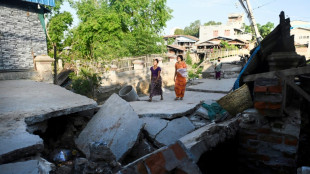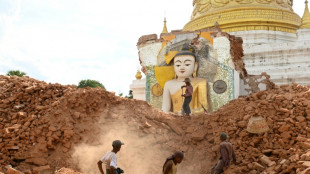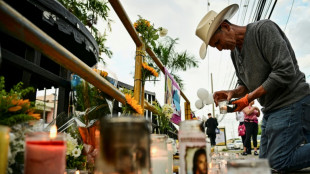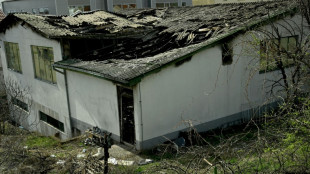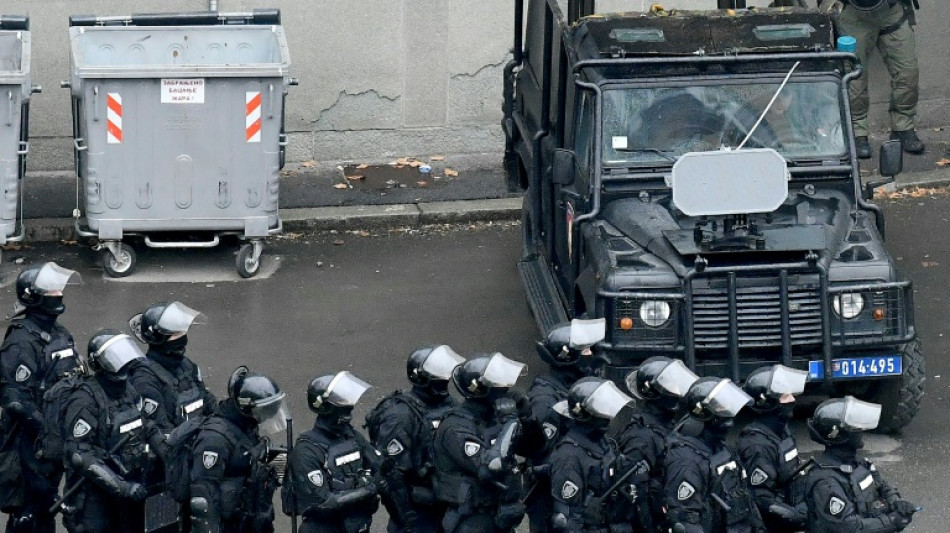
UN urged to probe sonic weapon allegedly used on Serbian protesters

Serbian activists delivered a petition with more than half a million signatures to the UN in Belgrade Tuesday demanding an international investigation into the alleged use of sonic weapons against protesters during last month's massive anti-corruption demonstrations.
Serbia's largest protest in decades descended into panic, triggered by an unexplained noise. Social media footage showed crowds fleeing, prompting claims that a sonic weapon or "sound cannon" was used on the protesters -- something authorities have strongly denied.
Several Serbian civil society groups say they collected over 3,000 testimonies, with some protesters reporting lasting health issues.
Some protesters said they heard a noise resembling that of a plane about to crash, while others said it sounded like a car rushing toward them.
The petition was launched by the KreniPromeni (Go for Change) movement calling for an independent international investigation into the incident.
It also urges that those who ordered, enabled or used such a weapon be held accountable.
"The nearly 600,000 people who signed this petition reflect a high level of civic awareness,"movement president Savo Manojlovic told reporters.
Photos published after the protest show a police vehicle with a large device mounted on its bonnet.
Interior Minister Ivica Dacic confirmed police possess such equipment but denied its use on protesters, while president Aleksandar Vucic dismissed the claims as "lies".
An official investigation was announced, with assistance requested from both the FBI and Russia's FSB security service.
FSB experts later reportedly arrived in Belgrade, though details remain unclear.
The controversy hit the headlines again this week after former deputy premier Cedomir Jovanovic referred to a sonic weapon by accident on television, unaware a live broadcast had begun.
"Someone played it, like music -- a thunderous sound," he said. "It wasn't to injure, just to scare -- like a car charging at you," he added.
He said he was later questioned by police.
Serbia's student-led protest movement began in November after the newly renovated concrete roof of Novi Sad train station collapsed, killing 16 people.
Anger over the incident, which some Serbs see as evidence of pervasive corruption, has exploded into the Balkan nation's biggest upheaval since the 1990s.
D.Petit--PS

 London
London

 Manchester
Manchester
 Glasgow
Glasgow
 Dublin
Dublin
 Belfast
Belfast
 Washington
Washington
 Denver
Denver
 Atlanta
Atlanta
 Dallas
Dallas
 Houston Texas
Houston Texas
 New Orleans
New Orleans
 El Paso
El Paso
 Phoenix
Phoenix
 Los Angeles
Los Angeles
